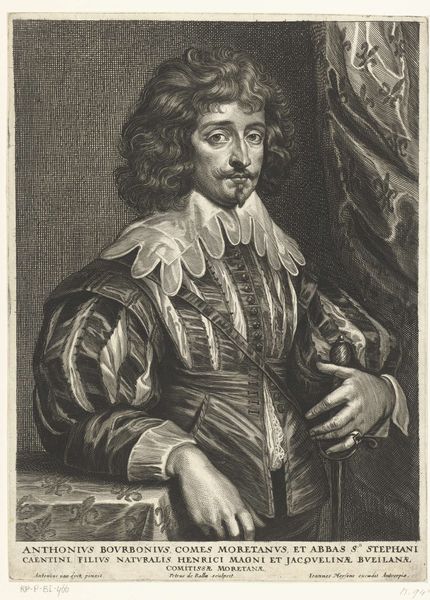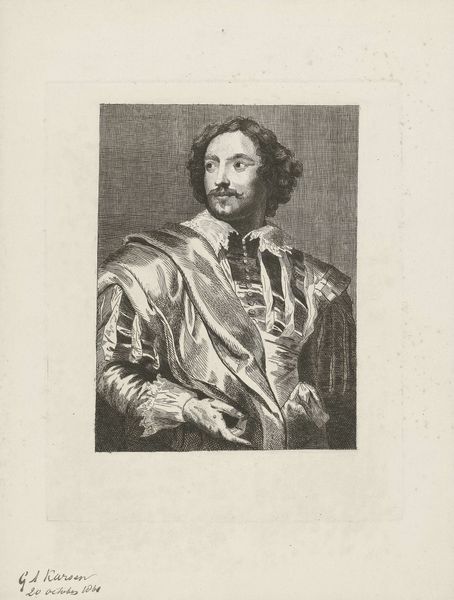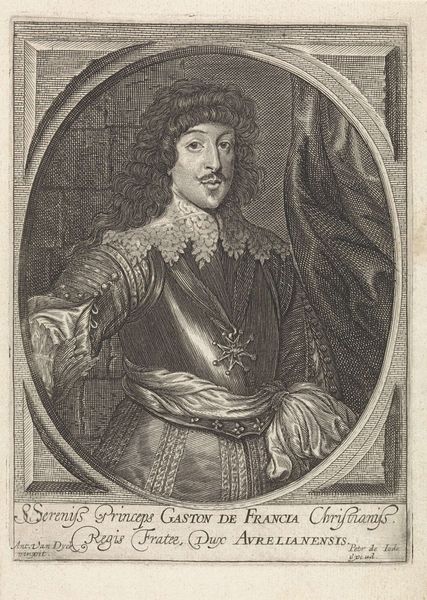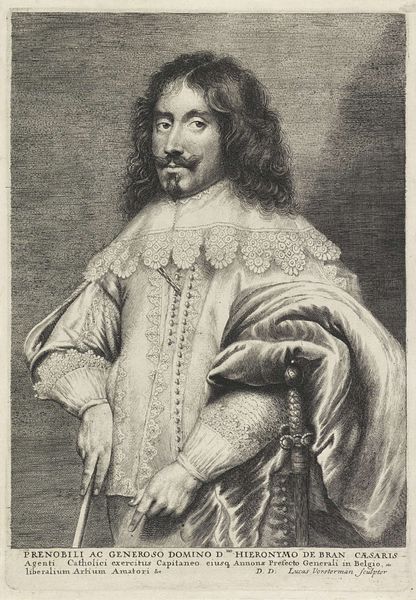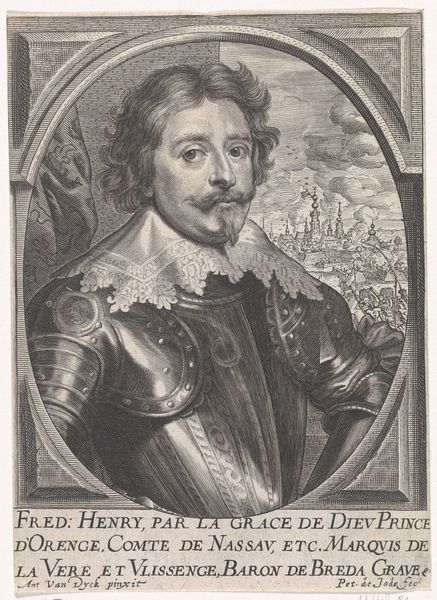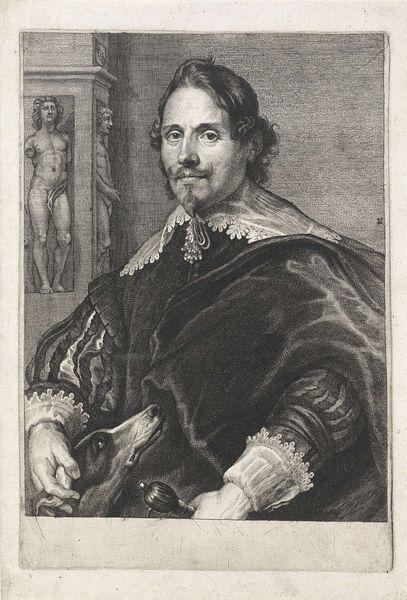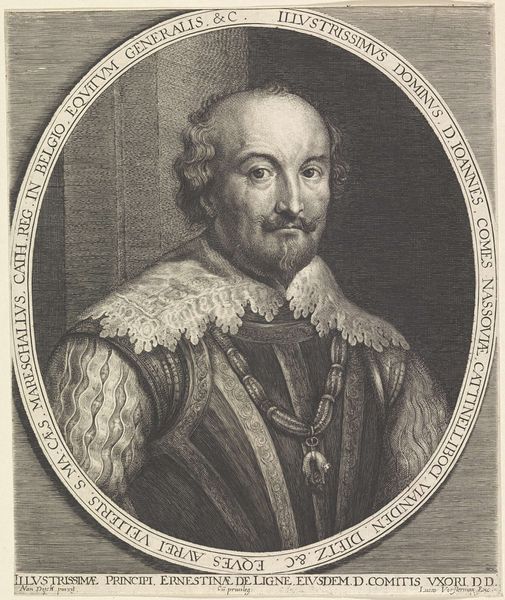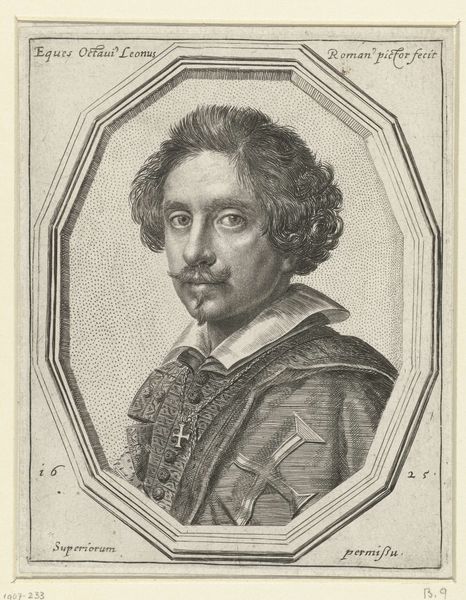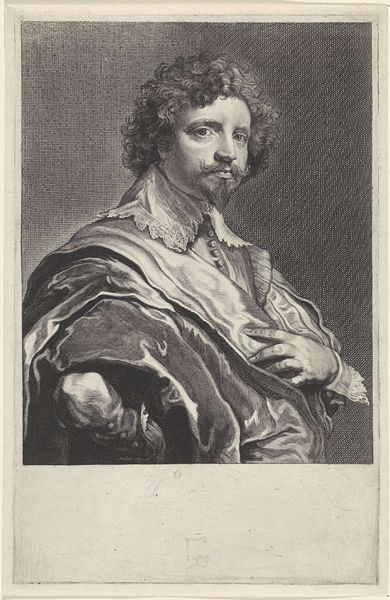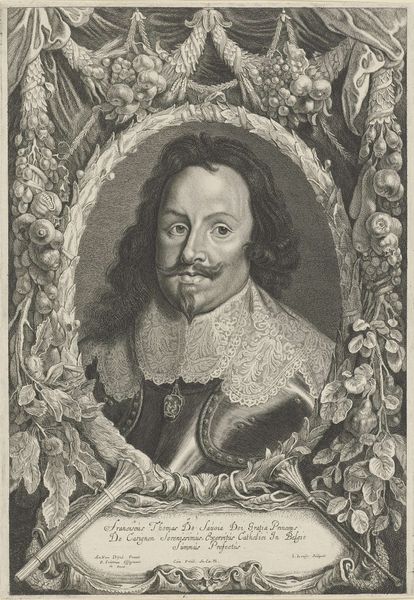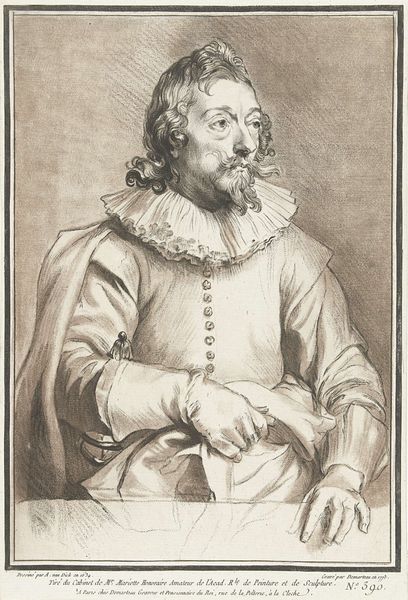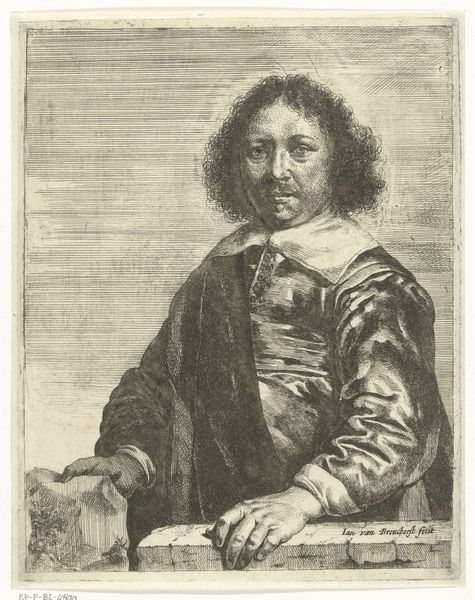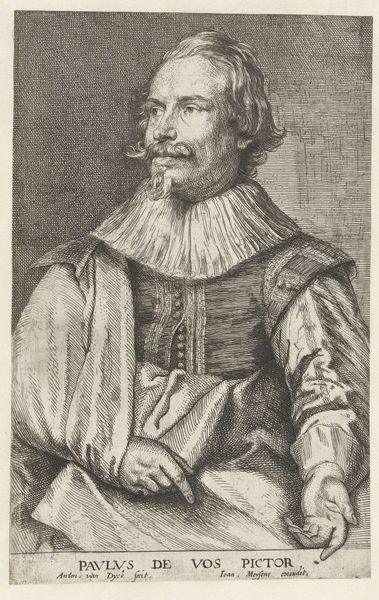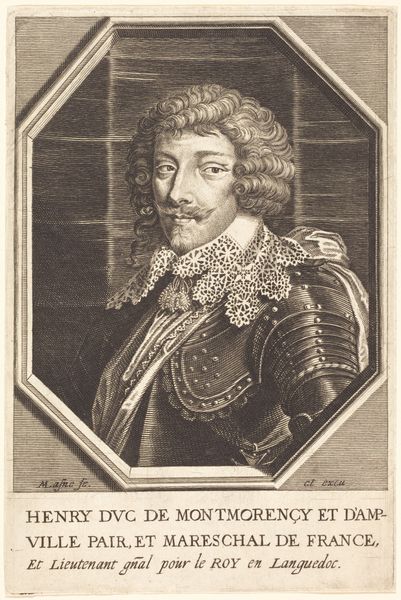
engraving
#
portrait
#
baroque
#
old engraving style
#
portrait reference
#
portrait drawing
#
history-painting
#
engraving
Dimensions: height 233 mm, width 163 mm
Copyright: Rijks Museum: Open Domain
This is Anthony van Dyck’s etching of Paulus Pontius, made in Antwerp in the 17th century. The portrait captures Pontius, an engraver, in the garb of a gentleman, highlighting the rising social status of artists in that era. During the 17th century, Antwerp was a hub of artistic production, driven by a burgeoning merchant class. Van Dyck, who spent time in Rubens's workshop, understood the importance of portraying artists not merely as craftsmen but as intellectuals and members of the upper class. This was a conscious effort to elevate the status of art and artists within society. The inscription below, "Paulus du Pont, Calcographus", explicitly identifies Pontius by name and profession, underscoring the significance of his artistic identity. To understand the painting fully, one can consult period documents, guild records, and the biographies of both Van Dyck and Pontius, thereby contextualizing the work within the art market and social structures of the time. Art, like this portrait, doesn't exist in a vacuum; its meaning is deeply rooted in its historical context.
Comments
No comments
Be the first to comment and join the conversation on the ultimate creative platform.
